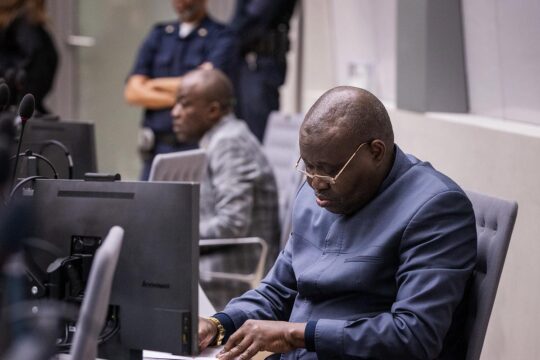The president of the Central African Republic pushed back Wednesday against UN warnings of looming genocide in his country, saying the complex crisis could not be reduced to religious and ethnic strife.
"We think that to talk about genocide at this stage is going too far... it is not justified," President Faustin-Archange Touadera told reporters in Geneva after addressing the Human Rights Council.
He was asked about comments from the recently departed United Nations humanitarian chief, Stephen O'Brien, who said renewed clashes in the country had "the early warnings signs of genocide".
Touadera countered that the factors fuelling the violence varied significantly in different places, with cases where people were fighting members of their own ethnic group or even their own family.
The conflict is partly driven by competition for land and resources like diamonds and timber, among other factors, the president said.
He dismissed the existence of a "programme" by one group to exterminate the other, as is required to meet the definition of genocide.
The current crisis in the Central African Republic dates to 2013 when the mainly Muslim Seleka rebel alliance seized power.
They were forced out, with help from a military intervention by former colonial power France, but the country has remained plagued by violence involving various armed groups.
More than 600,000 people have fled their homes within the country and a further 500,000 have crossed borders as refugees, while nearly 2.5 million need aid, according to the UN.
The UN is considering beefing up its 12,000-strong peacekeeping force in the country in response to renewed violence this year.





